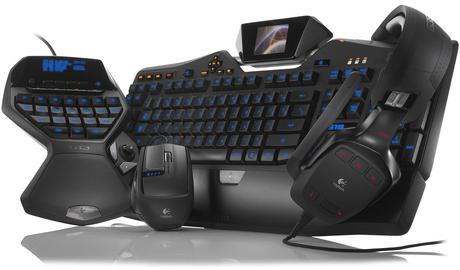 If there is one thing that has become more and more apparent to me over my years immersing myself in gaming culture, is that there is a very specific view of the so called "PC Gamer" that has found itself ingrained in the popular consciousness. The fact that I'm hearing terms like "The PC Gaming Master Race" thrown about more and more frequently these days is a reasonable cause for concern. Not that I believe such a term comes from any particular place of malice, but the whole "Consoles vs PCs" divide was intriguing enough to make me sit down and think about where all of these perceptions came from. Clearly the prevailing opinion - to a certain degree - is that PC gamers have a tendency to be elitist and exclusive when it comes to their preferred pastime.
If there is one thing that has become more and more apparent to me over my years immersing myself in gaming culture, is that there is a very specific view of the so called "PC Gamer" that has found itself ingrained in the popular consciousness. The fact that I'm hearing terms like "The PC Gaming Master Race" thrown about more and more frequently these days is a reasonable cause for concern. Not that I believe such a term comes from any particular place of malice, but the whole "Consoles vs PCs" divide was intriguing enough to make me sit down and think about where all of these perceptions came from. Clearly the prevailing opinion - to a certain degree - is that PC gamers have a tendency to be elitist and exclusive when it comes to their preferred pastime.An opinion that is not completely unfounded, to be frank. But I can't help but feel like there is a whole lot more below the surface.
To give a backstory on where I'm coming from with this issue, I am a long time PC gamer. I remember playing The Secret of Monkey Island on my old family computer running Windows 3.0, I remember buying a new graphics card for my family's next computer so I could play Freelancer. During my first summer job after the 10th grade, I immediately saved up for my first custom PC, almost exclusively so I could play games. I've played consoles throughout my life as well, and enjoyed them thoroughly, but nothing has been able to dislodge the PC as my primary gaming device.
To me, PC gaming was simply natural.
So initially, the ill will that seemed to be leveraged against PC gamers in the eye of other gamers took me by surprise. I had never viewed PC gaming as anything out of the ordinary, but the more I entrenched myself in gaming culture, the more I came to see people viewing me as elitist for claiming to be a "PC Gamer".
It's not like those arguments are without merit, either.
PC gamers are some of the most aggressive defenders of their medium in the industry, the evidence to that is easy to see. Just about every gamer who uses a PC primarily has, at one point, tried to prove to a friend that PC gaming is vastly superior to consoles. I'm just as guilty as anyone for attempting to buoy my favoured platform over all others. We tend to be assertive and extremely stubborn in our opinions on the subject. But why is that exactly?
When it is all said and done, it has never been about PCs vs. Consoles to us. The simple matter is, no other gaming platform in the last decade has had to argue its right to exist more than PC Gaming.
I can say first hand, as a PC gaming enthusiast, it is very easy to feel put upon by the state of the games industry right now. We are viewed as an amalgamation of pirates by the games industry, and unnecessary and elitist by gamers who primarily use consoles. We feel hemmed in, trapped, and it is only natural for us to get a little defensive. No one with a Playstation as ever need to argue their platforms legitimacy as a gaming device. But as a PC Gamer, I can't count the number of times I've had to answer the question "Why don't you just use consoles?".
I'm not trying to defend or excuse some of the elitism that has stemmed from PC gaming. All I'm trying to do is show the other side of the coin. I just feel like the less PC gamers feel like they need to defend their platform, the less vocal they will have to be, and the divide between PCs and Consoles will become smaller. And that, I hope you agree, can only be good.

